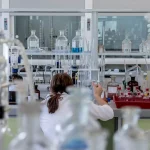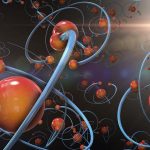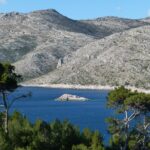One of the most respected Croatian scientists in the world, professor Nenad Ban, from the ETH Zürich University recently visited Zagreb, held a talk at the Faculty of Science and gave a lengthy interview to Zoran Vitas for Večernji list.
Professor Nenad Ban is internationally renowed as the scientist who was among those who managed to determine the threedimentional structure of the ribosome, one of the biggest and the most complex molecules in any living organism. It is often said that Ban is the Croatian scientist who came closest to the Nobel prize in the recent history, as he was working in the laboratory headed by Thomas Steitz, and Steitz was awarded the Nobel prize in 2009, along with Ada Yonath and Venkatraman Ramakrishnan. He was the scientist who worked directly on the experiments to determine the structure of the large ribosomal subunit. Those results were published and that lead to his boss getting the most coveted prize in science. He says that he doesn’t feel like an unjustice was done to him, because it would be unfair as well if he had gotten the prize, and not his boss. The boss has setup the laboratory, he lead the research, he had the reputation, and the award was given to three separate labs, so it’s the most obvious solution to give it to the lab heads.
He then talked why his University, ETH is considered to be so prestigious. It’s probably the best ranked university outside of the English-speaking world, often near the top of any list of the best universities in the world. There are some areas of research where it’s probably the best, such as electrical engineering. It is perfectly located, in the centre of Europe, supported by the Swiss budget, and all of that adds to its reputation which, in turn, brings the best people to study there. The atmosphere is very inspiring, making one want to move the borders of science. He’s been there for 19 years, and all of his expectations have been met.
Life in Switzerland is not as different from the life in Croatia as one would imagine, prof. Ban says. The trams in Zürich are the same as the ones in Zagreb, there are many caffees in narrow streets etc. He had many opportunities to move to the US, but the lifestyle in the American cities didn’t appeal to him. His children went to school on their own aged eight or nine, and enjoy the organized public transportation and diversity, internationality of Zürich.
His impressions of the US, where he was at Yale University for several years are that the East Coast is still quite conservative, and that Switzerland is much less conservative. Rules and regulations in Switzerland haven’t bothered him, as he found the system to be very useful. His lab was being refurbished, and the plans were made in advance and he was told that it would last for 8 months – and that’s exactly how long it lasted! Yes, you can get mad when you get a speeding ticket for going 3 km/h over the limit, but the consequence of that is that people are driving much more carefully.
Professor Nenad Ban commented on the numerous problem in the system of education in Croatia, saying that it’s important to start teaching the children from the early age that science and academia are prestigious and appreciated. It’s important to invest more into IT, science, anything that can lead to better education for the next generations. The state must turn the positions in education into a more attractive profession. He admits that he doesn’t have the detailed overview of the problems here, and that in Switzerland a large portion of the budget is dedicated to education.
He has no plans to return to Croatia, as the research he’s doing can be done on several universities in the world, Zürich, San Francisco, Boston. He has no plans to move anywhere at the moment. He doesn’t rule out the possibility of spending one year at some other university, possibly even Zagreb. He’s working closely with a laboratory at the Faculty of Science in Zagreb, headed by Ita Gruić-Sovulj. The two labs recently got a grant from the Swiss National Science Foundation, and a lot of those funds came to Zagreb to support the research done here.
His group has recently published several very interesting papers, one in Nature Communications magazine, and one in Science. On one of them, Nenad Ban worked with his wife, Eilika Weber-Ban (also a lab head on ETH), deals with how the bacteria which cause tuberculosis adapt to the damage to their DNA. The other paper deals with how the cell assembles the ribosomes. The main focus of his research remains on the ribosome, specifically the mitochondrial ribosome.
Read more about Croatian science and scientists on TCN.









